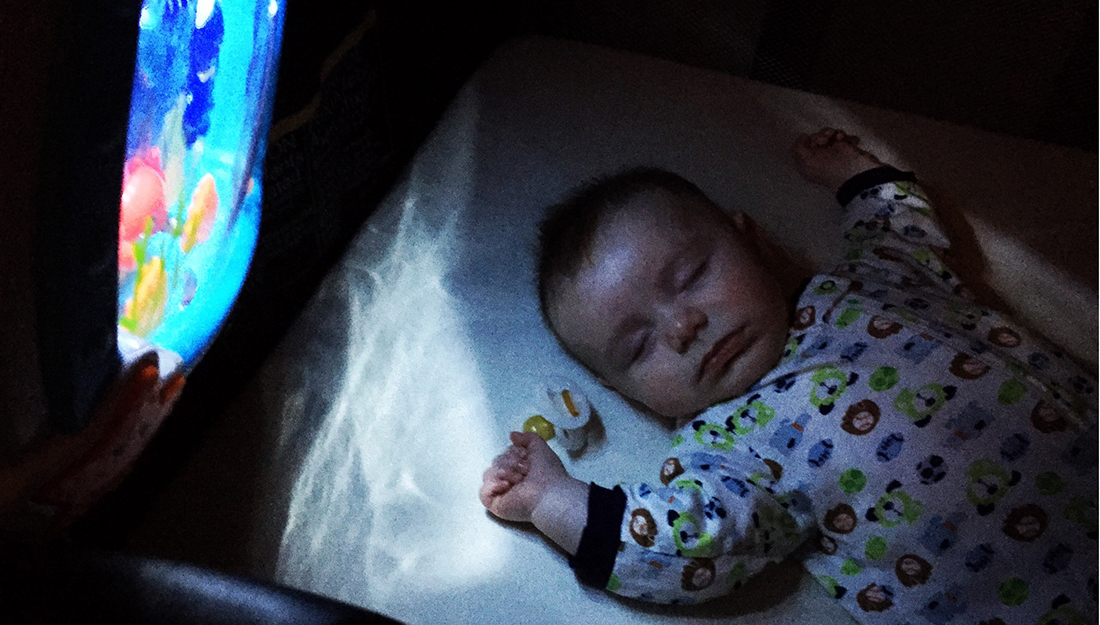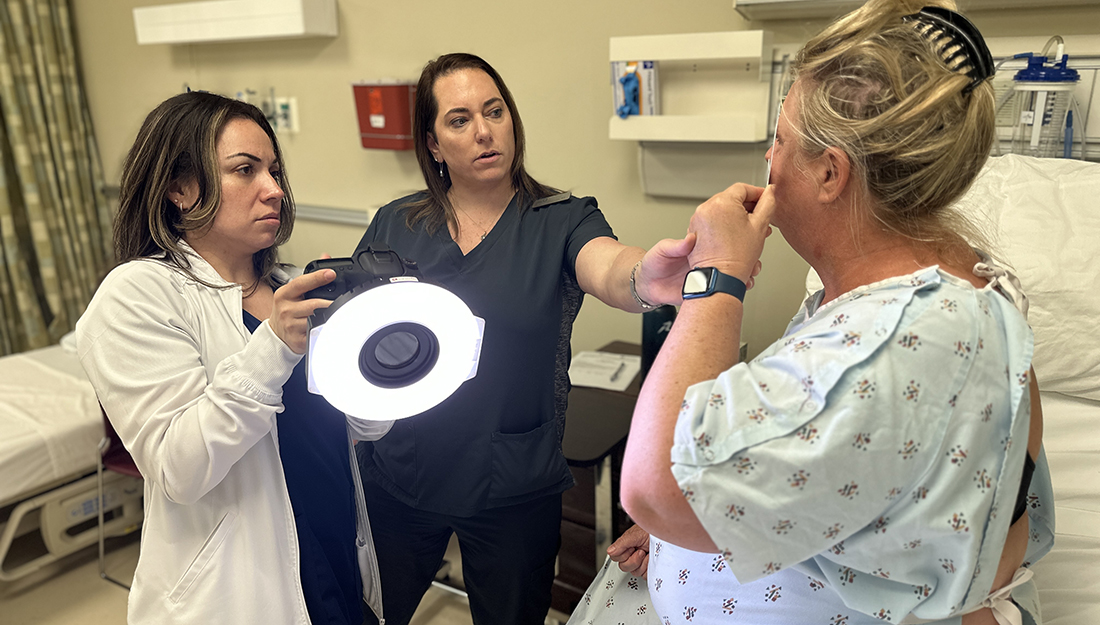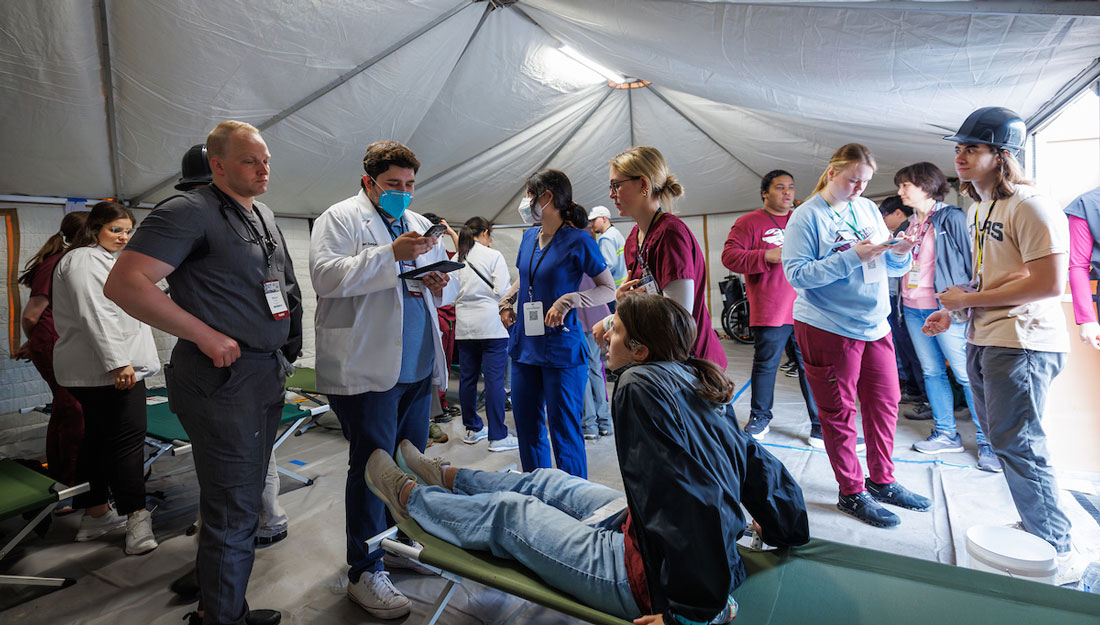- Christina Sumners
- Nursing, Research, Show on VR homepage
How recorded lullabies affect premature infants
Texas A&M researcher studies the beneficial effects of music

Lullabies help preemies gain weight
“Twinkle, twinkle little star…” those familiar words may have a soothing effect on the planet’s smallest humans: premature infants, according to research from the Texas A&M College of Nursing. Previous studies had shown the benefits of this song, but it was unclear which would be more calming: the voice of the child’s mother or that of a professional music therapist.
Jacqueline Stout-Aguilar, PhD, registered nurse and a clinical assistant professor at the Texas A&M College of Nursing, decided to find out.
“When my daughter was in the Neonatal Intensive Care Unit, I would sing to her,” Stout-Aguilar said. “The neighboring mom would put her iPhone into her baby’s incubator, which got me thinking. First, is it safe? And second, who’s better? My motherly voice, or that beautiful recorded voice singing lullabies? That was the genesis of my dissertation research.”
“Twinkle, Twinkle” was a good choice of lullaby because it is easily translatable from English into Spanish (the preferred language of some of the mothers in the study) and its low pitch and low timber is safer for the babies’ developing auditory systems. (Stout-Aguilar was also careful to make sure the sound levels inside the incubators never exceeded 60 decibels.)
Stout-Aguilar divided up the infants in incubators into three groups: one would hear a recording of their mother singing “Twinkle, Twinkle,” one would hear a recording of a professional music therapist singing the same song and the third would serve as a control group and receive no special stimulation. Each baby in the experimental groups would get 20 minutes of music three times per day, three days per week, until they were ready to move out of their incubators. Stout-Aguilar only played the music when the parents weren’t at the bedside, so as not to interfere with bonding. The research continued for six months until Stout-Aguilar had looked at 90 babies in total.
The results were surprising.
“The group that heard the music therapist gained more weight than the mother’s voice group, contradicting everything in the literature,” Stout-Aguilar said. “There was clinical significance because the weight difference was about 10 ounces, which is a huge difference in a preemie baby.”
Perhaps even more surprising was the behavioral change seen after the music began playing. “One hundred percent of the time the babies would go from being active to quietly sleeping with the music therapist, but not with their moms,” Stout-Aguilar said. This could be because they were more stimulated with their mothers’ voice. It is also possible that the babies sensed the nervousness in their mothers’ voices. “Most of the time mothers weren’t comfortable singing,” Stout-Aguilar said.
Stout-Aguilar’s work goes far beyond what is usually seen in the literature—instead of playing the music for a day or a week, she played it the entire time the babies were in the incubator. “Their behavioral states changed the whole time.”
“It’s an easy, cheap intervention,” Stout-Aguilar added, “and we’re showing good outcomes. Also, the moms said they felt better knowing their babies were hearing a soothing human voice, even when they weren’t able to be there talking to them.”
Next, Stout-Aguilar plans to measure the effect of music on the infants’ sleep quality and stress levels, which can be measured by the presence or absence of cytokines (small proteins that tend to be secreted in times of stress). Stress can lead to increased susceptibility to infections, which can be especially devastating to a baby without a fully developed immune system. Sleep is also vitally important to the baby’s ability to grow and regenerate.
“I’ve had complaints about, ‘Why not Dad?’” Stout-Aguilar said. “I’d love to eventually be able to do that study as well.” Her long-term goal is to have an overall understanding of stress and sleep in the mother and the baby, both before and after the baby is born.
“I had parents calling me after their baby was discharged from the hospital and asking me for a recording of the song,” Stout-Aguilar said. “They told me their babies just couldn’t sleep without it.”
Media contact: media@tamu.edu


